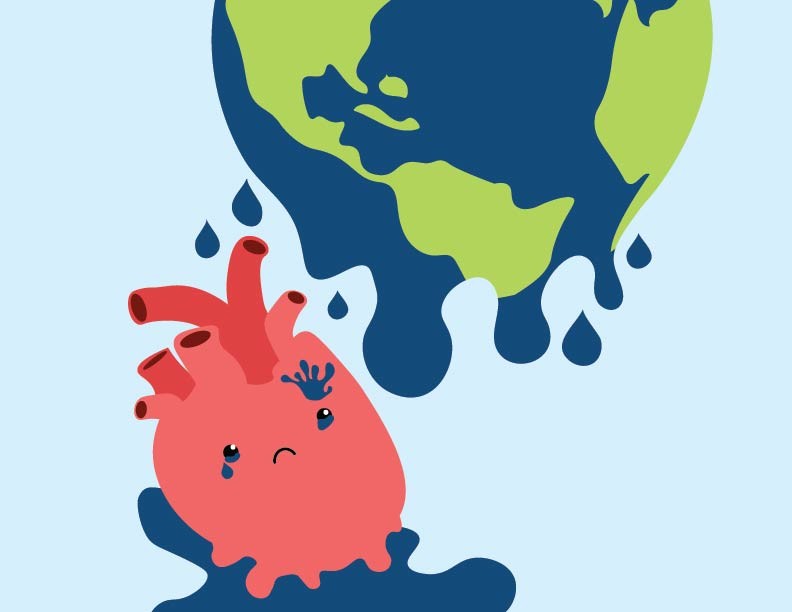When disease ecology professor Meggan Craft asked 15 fourth-year veterinary medicine students how they thought climate change will factor into their future profession — the responses were what she anticipated.
There were murmurs of heat and weather patterns, decreased habitat and exotic animals at risk.
“When we start, they’re talking about polar bears,” she said. “By the end, we want them to be thinking about how climate change relates to them and their practice.”
Craft is one of several faculty members pushing climate change into the Academic Health Center’s professional programs. They’re called the Climate Champions, and they argue climate change is an essential aspect of modern professional health training, not only because it impacts human health, but also because of health care’s massive carbon footprint.
Global warming has been described as the planet running a fever. Its symptoms, according to the United Nations Intergovernmental Panel on Climate Change, pose a threat to the health of entire ecosystems. The threat to public health is no less severe, according to The Lancet. The medical journal calls climate change one of the “gravest threats to human health and survival.”
But medical schools have been slow to give it class time, said nursing assistant professor Shanda Demorest. Each professional school has their “champion,” and Demorest is that for the School of Nursing. But before that, she was a nursing student unsatisfied with how her program sidelined environmental concerns.
“There wasn’t the holistic natural component that I thought there would be,” she said.
As a faculty member, she and eight other “champions” developed curricula on the health impacts of climate change. Starting last fall, they’ve been teaching the material in their own courses and have invited other instructors to discuss the impacts in their classes.
According to a survey of students in the AHC conducted by the student group Health Students for a Healthy Climate, only half of respondents’ classes included content connecting health and climate change.
“It’s difficult for faculty to be able to justify spending their scholarship time on something that seems political or something that seems social,” Demorest said. “[But] we want them to know that health professionals have a role adapting to and mitigating climate change. This is not just for tree huggers.”
Climate change will intensify existing health problems and create new ones, according to the Centers for Disease Control. A warmer planet will worsen air quality due to pollution and wildfires. That means more asthma and allergens.
More rain will bring more standing water for disease-causing pathogens to swell. Diseases will then move to unfamiliar regions.
The number of Lyme disease cases reported in Minnesota increased around 459 percent between 1996 and 2017, according to the Minnesota Department of Health, a change largely attributed to the increased number of ticks.
Health professionals need to be prepared for these impacts in order to provide adequate care, said Demorest. Providers should also be anticipating the mental health impacts of climate change, she said.
When people’s homes flood, lose heat or lose air conditioning, “maybe they experience some homelessness because they can’t live in their space anymore. That has mental health implications that don’t always get represented physically or when these patients are seeking care,” she said.
Students are also encouraged to advocate for making their workplaces more energy efficient. The health care industry is responsible for around 8 percent of U.S. greenhouse gas emissions, according to the Journal of the American Medical Association.
Medical professionals are already prepared to have tough conversations with patients, said Health Students for a Healthy Climate co-chair Marie Gilbertson. “They have the ability, more so than others, to advocate for sustainability in clinical settings.”
They’re also well-equipped to discuss how climate change will affect patients’ health. Nurses are the most trusted professionals in America, according to Gallup. That comes in handy when talking about climate change has become nearly as difficult as discussing a bleak prognosis, Gilbertson said. “Health is a common language.”

















